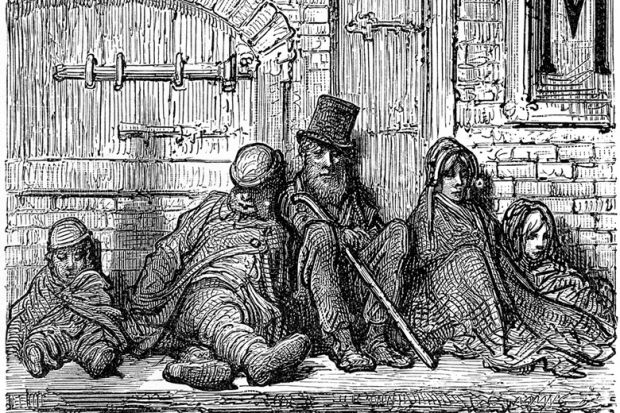Chris Renwick sets a cracking pace in a history of the British welfare state that should be put in the hands of every citizen-undergraduate. The book instructs its readers in the messiness of this history, its disgraceful partisanships, its errors and fatuities. But it also does abundant honour to powerful thought about the common good, to the courage and moral tenacity of an army of philosophers, public-spirited academics, honourable politicians, and a host of figures from the noble British tradition of unthanked officers in a hundred charities.
Renwick summons a vast roll call of thinkers, researchers and politicians. Many are of course well-known – Herbert Asquith, David Lloyd George, William Beveridge and Beatrice Webb from the early 20th century alone are all names essential to the momentum of Renwick’s theme, but he goes back deep into the 19th century for his origins, crediting the fractious public philosopher Edwin Chadwick for his contribution, noting that in 1860s Paddington “the workhouse infirmary had one towel for every 31 people”. He bends his knee to T. H. Green’s Taunton Commission on education and to John Snow, who traced cholera to a single water pump, honouring the eight-hour day that Robert Owen introduced in his model village of New Lanark, lining up Lord Shaftesbury, John Stuart Mill, Engels and Dickens for their part in the gradual making of a public conscience capable of enacting welfare as a universal system of domestic entitlements.
These people were, however, the merest forerunners. The binding concept that permitted such different actors on the public stage to discover allies and declare common purpose is, for Renwick, English, Scottish, Welsh and Irish liberalism.
Liberal compromise made allies out of so mixed a bag as Beveridge (damned awkward as he was), John Maynard Keynes, Alfred Marshall, even Winston Churchill, himself so odd a mixture of old reaction and new progressivism. Then, as the women who stood to be the obvious beneficiaries of welfare joined in and up, there came Margaret Bondfield as minister of labour in 1929, Eleanor Rathbone and her daring proposal that women be paid for domestic labour, Ellice Hopkins and her polemic The Power of Womanhood, and Ellen Wilkinson, minister of education in Clement Attlee’s Cabinet.
With the Attlee government of 1945-51, Renwick’s grand narrative comes to its climax. A short review such as this must not allow its readers to suppose that the book is no more than a heroic register. It is the history of a world-changing idea. In a lecture to the British Academy, the historian Quentin Skinner once described the 300-year making of the idea of a free state as the invention of “the moral agent of the people”. Beveridge’s famous report published in the dark days of 1942, Aneurin Bevan’s careful parleying with the British Medical Association in 1948, even public-school-educated R. A. Butler’s 1944 Education Act and, supremely, Michael Young’s 1945 Labour Manifesto all acted in the capacity of “moral agent of the people” and on behalf of a democratic liberalism scrupulously guarded by Attlee.
Such is Renwick’s great subject, rousingly told and finely controlled. In 2017, the welfare state is mortally ill. This book is a firm reminder of just how essential it is to all our lives.
Fred Inglis is honorary professor of cultural history at the University of Warwick.
Bread for All: The Origins of the Welfare State
By Chris Renwick
Allen Lane, 336pp, £20.00
ISBN 9780241186688
Published 7 September 2017
POSTSCRIPT:
Print headline: A radical idea to remake society
Register to continue
Why register?
- Registration is free and only takes a moment
- Once registered, you can read 3 articles a month
- Sign up for our newsletter
Subscribe
Or subscribe for unlimited access to:
- Unlimited access to news, views, insights & reviews
- Digital editions
- Digital access to THE’s university and college rankings analysis
Already registered or a current subscriber? Login




